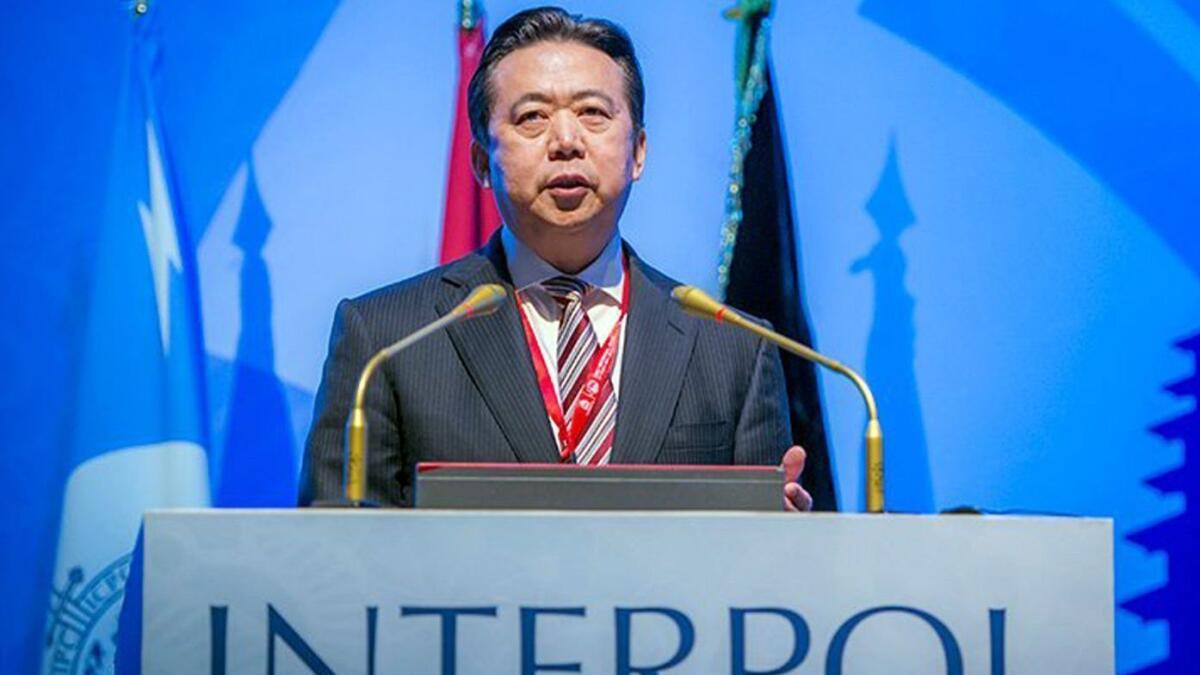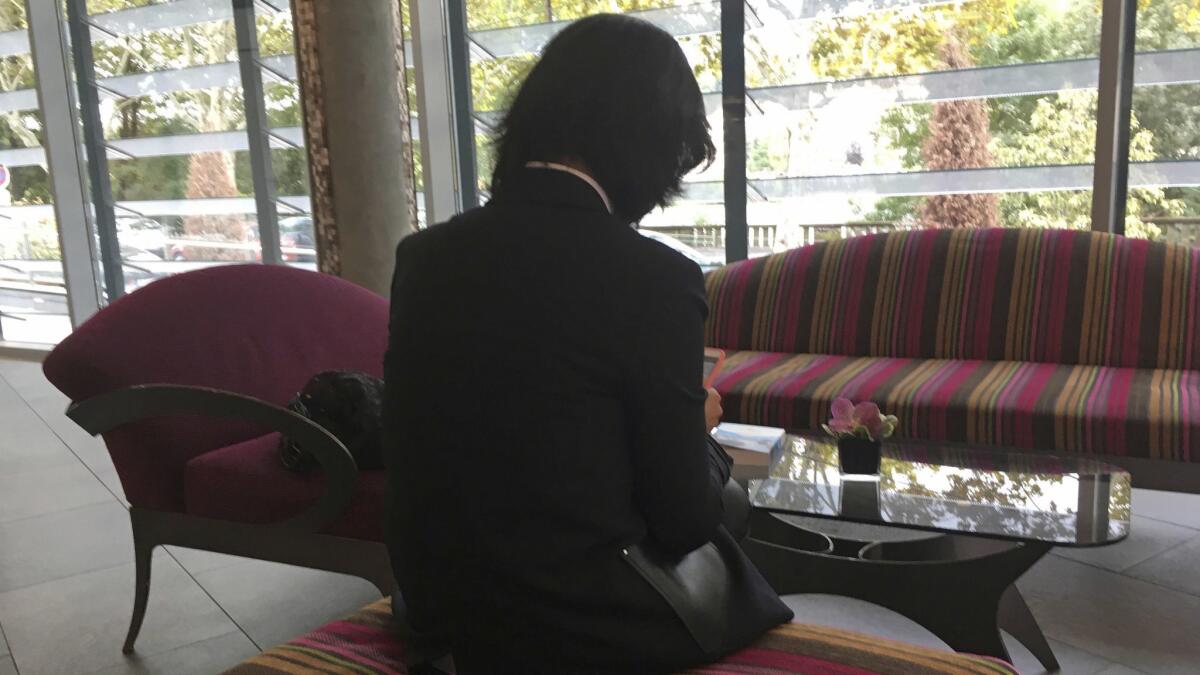Wife of missing ex-Interpol boss says speaking about his disappearance has placed her ‘in great danger’

Reporting from Lyon, France — The wife of the former Interpol president who disappeared in China revealed that she had received a threatening phone call warning of agents coming for her — but said she would keep fighting for information about her husband’s fate.
In her first one-on-one interview since Meng Hongwei went missing, Grace Meng denied bribery allegations against her high-profile husband, and told the Associated Press that speaking out about his disappearance was placing her “in great danger.”
Meng Hongwei — who is also China’s vice minister of public security — vanished while on a trip home to China late last month. A longtime Communist Party insider with decades of experience in China’s sprawling security apparatus, the 64-year-old is the latest high-ranking official to fall victim to a sweeping purge against allegedly corrupt or disloyal officials under President Xi Jinping’s authoritarian administration.

Speaking to the AP late Monday at a hotel in Lyon, France, where Interpol is based, Grace Meng said her husband had been gone for more than a week on a trip to China when she got a threatening call on her mobile phone from a man speaking in Chinese.
She had just put their two young boys to bed at home in Lyon and recalled that her last contact with her husband was by text message, on Sept. 25, when Meng wrote “wait for my call” and sent her an emoji image of a knife after traveling back to China. But Meng did not call.
Instead, a man who didn’t identify himself did.
“You listen but you don’t speak,’” she described him as saying. He continued: “We’ve come in two work teams, two work teams just for you.”
She said the only clue the caller gave about his identity was saying that he used to work for Meng, suggesting that the man was part of China’s security apparatus. He also said he knew where she was.
As a result, Grace Meng is now under French police protection.
By speaking out about her husband’s fate, she has taken a step practically unheard of in Chinese politics, where such moves are seen as confrontational.
The Chinese Foreign Ministry did not immediately respond to a request for comment late Tuesday in Beijing.
Chinese authorities said Monday that Meng Hongwei was being lawfully investigated for taking bribes and other crimes that were a result of his “willfulness.” Hours earlier, Interpol said Meng had resigned as the international police agency’s president. It was not clear whether he did so of his own free will.
His wife suggested that the bribery accusation was just an excuse for a lengthy detention.
“As his wife, I think he’s simply incapable of this,” she said. She said she would be willing to make their bank accounts public.
She said that she spoke out in hopes that doing so might help other families in similar circumstances.
“I feel like I have a responsibility to stand up. Only when you’ve been through this much pain can you understand that even more people have been suffering,” she said.
She refused to provide her real name to the AP, saying she was too afraid for the safety of her relatives in China. It is not customary for Chinese wives to adopt their husbands’ names. Grace Meng said she has done so now to show her solidarity with her husband. Her English name, Grace, is one she has long used, she said.

A French judicial official, speaking on condition of anonymity, confirmed to the AP that police are investigating the threat against Grace Meng, but said the probe has yet to determine whether there were indeed Chinese teams sent to Lyon.
China’s move to go after Meng, an official with an international standing, was unusually audacious even for an administration that under Xi’s leadership has sought to assert its interests more aggressively on the global stage.
Poland’s interior minister, Joachim Brudzinski, told AP on the sidelines of a meeting in Lyon on Tuesday that Beijing could act “in an ostentatious way, without limit” because it has learned how to act with impunity.
Grace Meng wouldn’t speculate on why her husband may have fallen out of favor, saying he had stayed above the secrecy-shrouded world of factional party politics.
She described her husband as a man of modest beginnings, the fifth of six children whose parents were schoolteachers. He rose through the ranks based on his own merit, she said, and always remained an idealist who longed to see the rule of law established in China.
But China’s beleaguered rights activists point out that as someone with a seat atop the country’s powerful public security apparatus, Meng has helped build the opaque system of largely unchecked power wielded by the ruling Communist Party to which he’s now fallen victim.
“Once an issue becomes political, there is no law. This has happened even to Meng Hongwei himself,” said Hu Jia, a Beijing-based rights activist who is frequently placed under house arrest for his critical comments. “If his wife weren’t in France and speaking to the media, his case would have been locked in a black box.”
Earlier this year Chinese officials established the National Supervision Commission, a party-led anti-corruption agency empowered to detain suspects for up to six months and to operate independent of the Cabinet, courts and prosecutors.
“If Meng Hongwei weren’t an Interpol chief, people would have no idea what kind of a police empire China has become,” said Hu, the activist.
More to Read
Sign up for Essential California
The most important California stories and recommendations in your inbox every morning.
You may occasionally receive promotional content from the Los Angeles Times.










